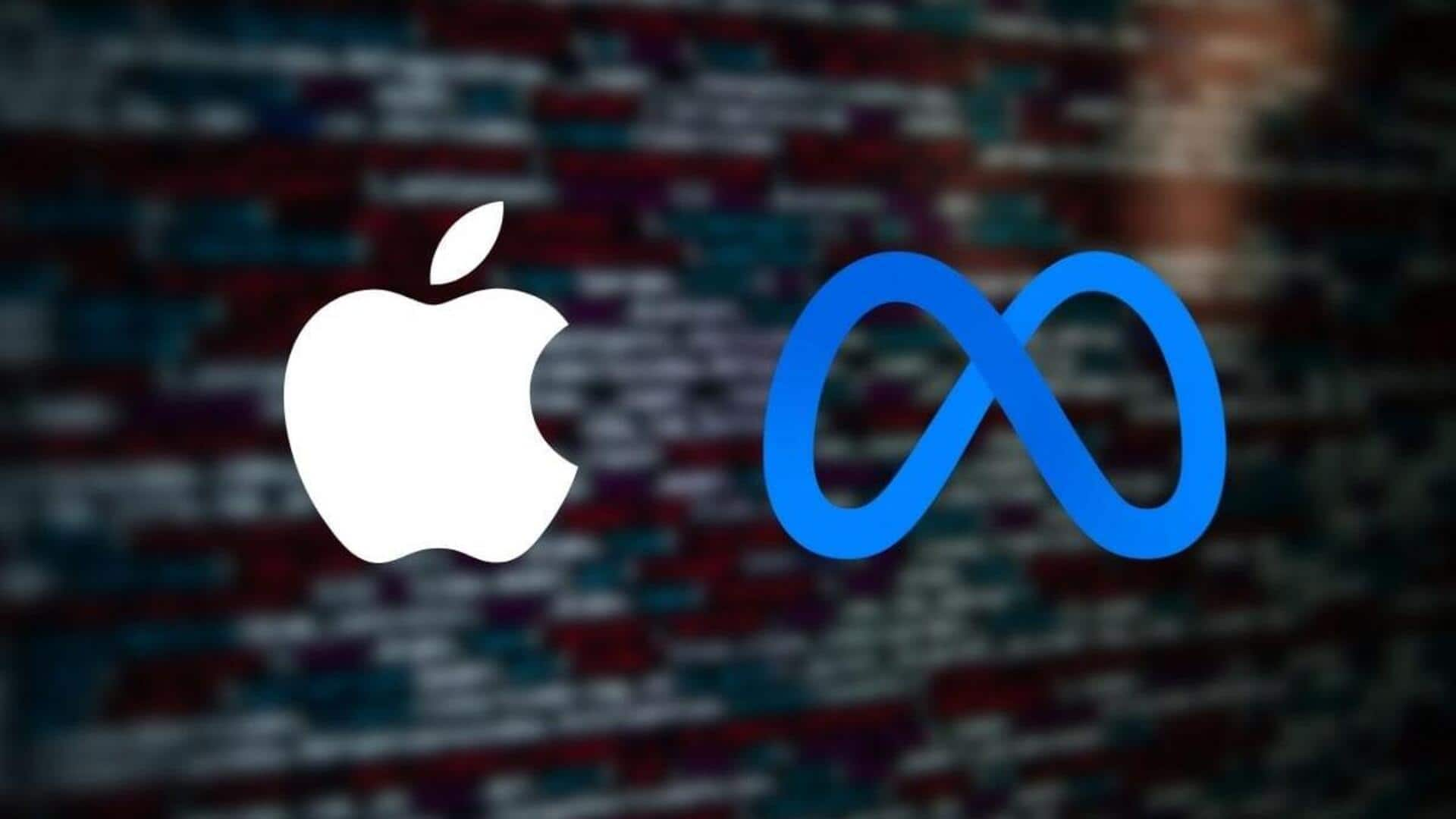
Apple accuses Meta of jeopardizing user privacy through DMA requests
What's the story
Apple has flagged Meta's many interoperability requests under the European Union's Digital Markets Act (DMA), Reuters reported. The tech giant argues that the requests could jeopardize user privacy and security. Under the DMA, Apple is required to allow competitors and third-party app developers to integrate with its services, or pay a hefty fine up to 10% of its global revenue.
Interoperability obligations
Apple's obligation and Meta's requests under DMA
The DMA mandates Apple to permit other companies to submit interoperability requests for hardware and software affecting iOS and iPadOS devices. Upon approval, Apple has to create a solution enabling seamless interoperability. Meta has filed 15 such requests, the most by any company till now. Apple contends that complying with these would give Meta broad access to its technology stack, risking user privacy and security.
Privacy fears
Apple's concerns over Meta's interoperability requests
Apple has raised concerns that many of Meta's requests seek to alter functionality in a way that could compromise user privacy and security. The company said, "In many cases, Meta is seeking to alter functionality in a way that raises concerns about the privacy and security of users." It also added these changes appear to have nothing to do with the actual use of external devices like Meta smart glasses and Quests.
User risk
Apple warns of potential risks from Meta's requests
Apple has warned that if it were to grant all of Meta's requests, platforms like Facebook, Instagram, and WhatsApp could allow Meta to access extensive user data on their devices. This includes messages, emails, phone call details, app usage data, photos, files and calendar events. The company also highlighted Meta's recent privacy issues in Europe where it faced penalties for data breaches and tracking users across apps.
Counterclaim
Meta refutes Apple's claims about interoperability
Responding to Apple's allegations, Meta claimed the tech giant is resisting interoperability. The social media titan said, "What Apple is actually saying is they don't believe in interoperability. Every time Apple is called out for its anticompetitive behavior, they defend themselves on privacy grounds that have no basis in reality." This shows a fundamental disagreement between the two companies over the DMA's interoperability provisions.
EC guidance
European Commission's preliminary directions on Apple's interoperability
Recently, the European Commission (EC) issued preliminary guidelines on how Apple should become more open toward competitors. These include transparency about the different stages, deadlines, and criteria related to the completion of interoperability requests. The EC also outlined steps for Apple to provide interoperability with all functionalities of the iOS notifications feature available to devices like Apple Watch and Vision Pro, and any future connected physical devices.